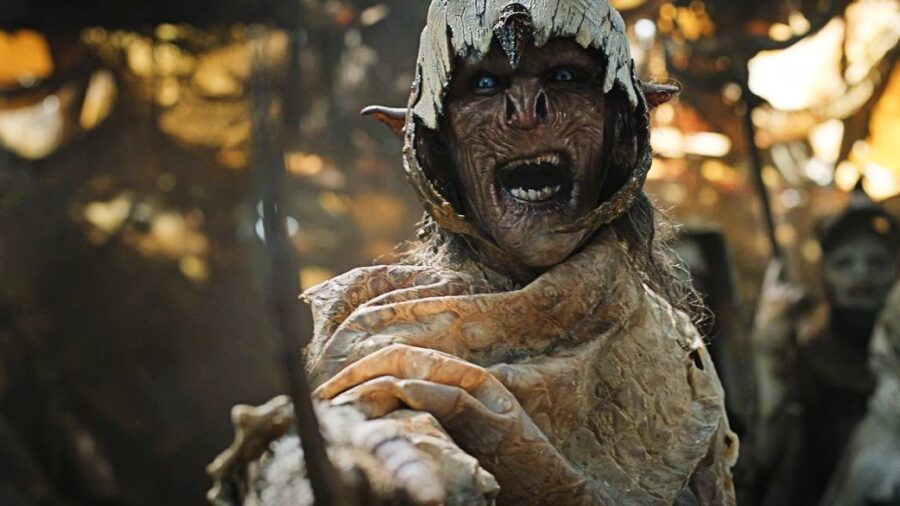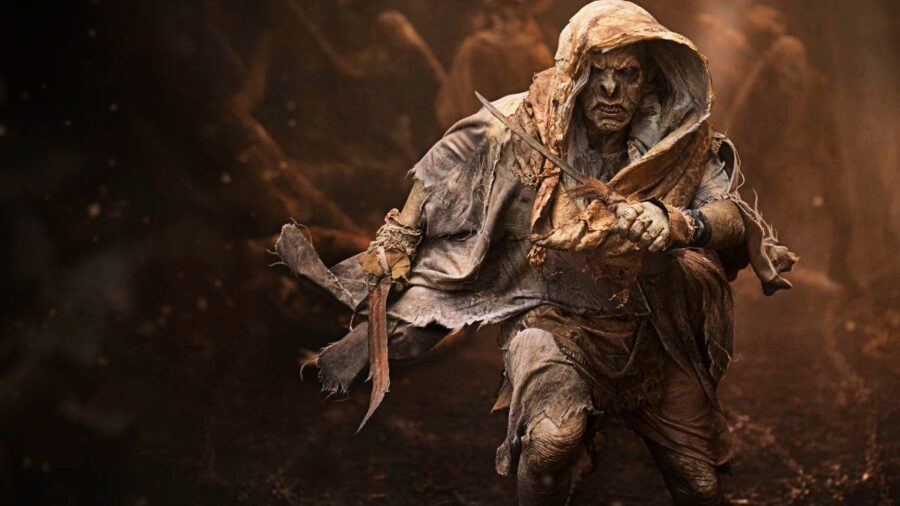The Rings Of Power Making Orcs An Oppressed Minority?
The Rings of Power is raising the question of whether Orcs deserve to be killed.
This article is more than 2 years old
The Lord of the Rings: The Rings of Power has been one of the most anticipated prestige television series in years, with JRR Tolkien fans ready for a new adaptation of the franchise after the disappointment of The Hobbit movies and everyone else wanting to see what a billion dollars looks like on screen. As with any beloved series with a dedicated fandom must, The Rings of Power instantly created firestorms of controversy about any number of things. The sixth episode of the series, “Udûn” has now raised what will no doubt be a contentious question: are Orcs an oppressed minority?

This most recent episode of The Rings of Power finally shed some Goblin-burning light on a number of matters that fans had been debating, most importantly, the nature of Adar, the apparent leader of the Orcs in the Second Age. While The Rings of Power did not go so far as to reveal whatever former identity Adar (portrayed by British actor Joseph Mawle in a standout performance) had, it confirmed fan theories that he was an ancient Elf who had tortured and transformed by the original Dark Lord Morgoth into the first Orc (or at least, one of the first). As of right now in The Rings of Power, it appears he perceives himself as the protector of Orckind, who in his view has been brutalized by literally everyone.
It is an interesting development in the lore of The Rings of Power, and one essentially unexplored in previous adaptations of Tolkien’s work. In pretty much all other adaptations (which began as early as radio plays in 1955), Orcs are largely interchangeable, malevolent creatures who epitomize evil and can be slain without remorse by the heroes of the stories. Very few Orcs are even given names, let alone personality, and can be summed up as evil’s footsoldier in Middle-earth.

But what The Rings of Power presupposes is, what if they are not? Specifically, what if Orcs had their own inner lives and did not deserve to be fodder in anyone’s war. As Adar (whose name means “father” in the Elvish language of Sindarin and is treated as such by the Orcs) tells Galadriel (Morfydd Clark), he grew tired of Sauron’s relentless torture of his “children” in pursuit of power, and slew the Dark Lord. To hear Adar tell it, the Orcs are treated as disposable minions as much by the forces of evil as they are by the side of good.
It can be taken as an objective, humanistic truth that no one inherently deserves to be mercilessly slain in battle. But this is where Tolkien and The Rings of Power complicate things; Orcs are literally the product of evil, a dark parody of the beauty and grace of elves who seemingly revel in cruelty and destruction. But Tolkien himself largely believed as a philosophical point that evil (embodied by Morgoth and later, Sauron) could not create anything, but only corrupt.
Thusly, Orcs may have been created for dark ends, but they ultimately derive from the same universal creation story of Tolkien’s Silmarillion (which Adar obliquely references in The Rings of Power). They were born into bondage (whether by biological or other means, Tolkien variously gave contradictory origins) and spend their lives being faced with death on both sides of the moral divide. Why should Adar not want to give them a better life and their own safe space?
This is complicated by the fact that even in The Rings of Power, there is no indication of any redeeming virtue in Orcs or a sign that they could act except in the nature that Morgoth twisted them into. Tolkien described Orcs as being rational beings (that is, not mindless automatons or non-sentient animals) and it is clear they have some elements of culture, such as languages and clan loyalties. But does that make them different from how they are perceived by Elves and Mankind?
At the end of “Udûn,” Adar has activated some kind of ancient engineering system that creates a massive volcano (most likely Mount Doom). It is now clear that The Rings of Power is depicting the creation of Mordor and some fans have theorized that the resulting cloud of ash is an intentional protective shield over the sun-averse Orcs. Adar is trying to create a homeland for his people, who he sees as tormented from every side.
The Rings of Power is not giving us any clear answer of what is the right thing here, but perhaps it will in the next few episodes. At the very least, it has raised questions that few adaptations of Tolkien have ever tried before.












